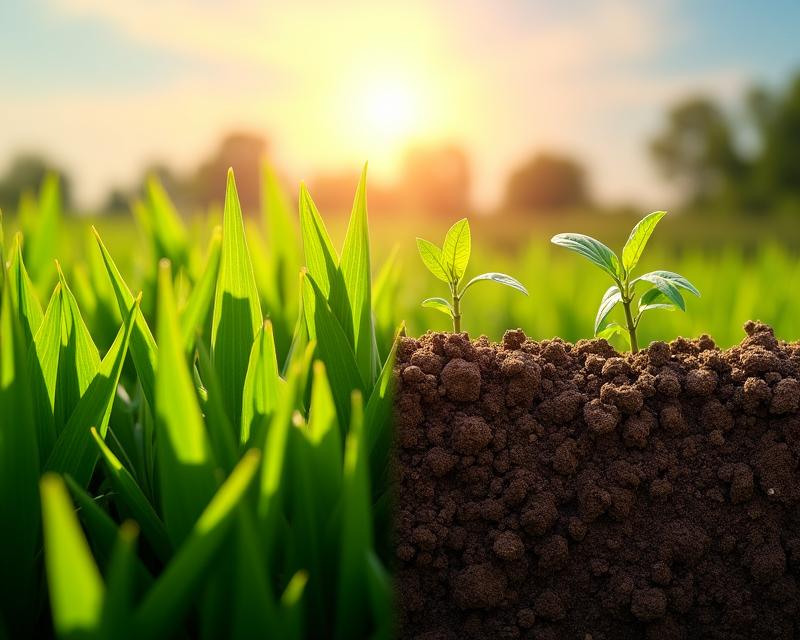Organic vs. Synthetic Fertilizers: What's Best for Your Farm?
Publish in Sustainable Farming el 21/07/2025 00:54
Organic vs. Synthetic Fertilizers: A Farmer's Guide
Choosing the right fertilizer is a crucial decision for any farmer or gardener. It directly impacts crop yields, soil health, and the environment. Two main types dominate the market: organic and synthetic. Both aim to provide essential nutrients to plants, but they achieve this in very different ways, leading to distinct advantages and disadvantages. Let's dive into a comparison to help you make an informed choice.

Synthetic Fertilizers: Quick Results, Potential Drawbacks
Synthetic fertilizers are manufactured chemically, offering a readily available and concentrated source of nutrients like nitrogen (N), phosphorus (P), and potassium (K). This means plants can absorb these nutrients quickly, often leading to rapid growth and higher yields – especially in the short term. They are generally less expensive upfront and easy to apply. However, this convenience comes with potential environmental consequences. Excessive use of synthetic fertilizers can lead to nutrient runoff, polluting waterways and causing algal blooms. These blooms deplete oxygen in the water, harming aquatic life. Furthermore, synthetic fertilizers can disrupt the natural balance of soil microorganisms, reducing soil biodiversity and long-term fertility. Over time, soil structure can degrade, requiring even more fertilizer to achieve the same results – a vicious cycle.
Organic Fertilizers: A Sustainable Approach
Organic fertilizers, on the other hand, are derived from natural sources like compost, manure, bone meal, and cover crops. They release nutrients slowly as they decompose, providing a sustained feeding source for plants. This slower release minimizes the risk of nutrient runoff and is gentler on soil ecosystems. Organic fertilizers improve soil structure, increase water retention, and promote beneficial microbial activity. A healthy soil food web is essential for plant health and resilience. While organic fertilizers might not provide the same immediate boost as synthetic options, they contribute to long-term soil health and sustainability. The initial cost can be higher, and application might require more effort, but the benefits to the environment and soil quality are significant.
The Long-Term Perspective
Ultimately, the choice between organic and synthetic fertilizers depends on your farming goals and priorities. If maximizing short-term yields is the primary concern, synthetic fertilizers might seem appealing. However, considering the long-term effects on soil health, water quality, and overall sustainability, organic fertilizers offer a more responsible and resilient approach. Many farmers are adopting a blended approach, incorporating organic amendments to improve soil health while supplementing with synthetic fertilizers when necessary to meet specific nutrient demands. Understanding the trade-offs is key to making the best decision for your farm and the future of agriculture. Consider soil testing to determine your soil's specific needs, regardless of the fertilizer type you choose. This will help you optimize nutrient application and minimize environmental impact.





